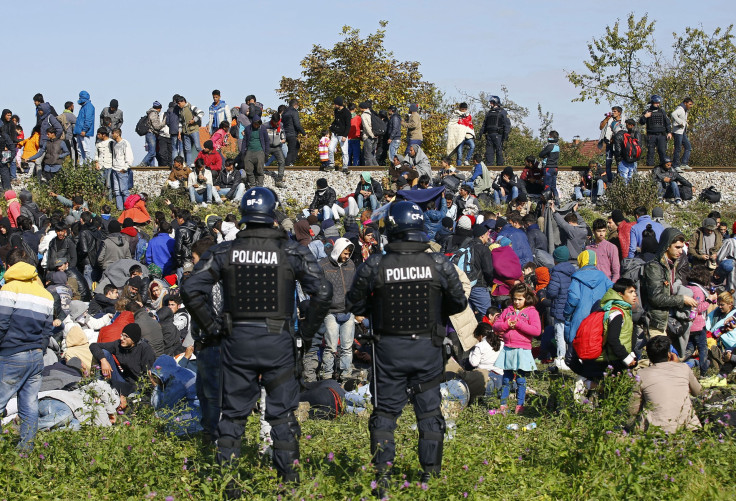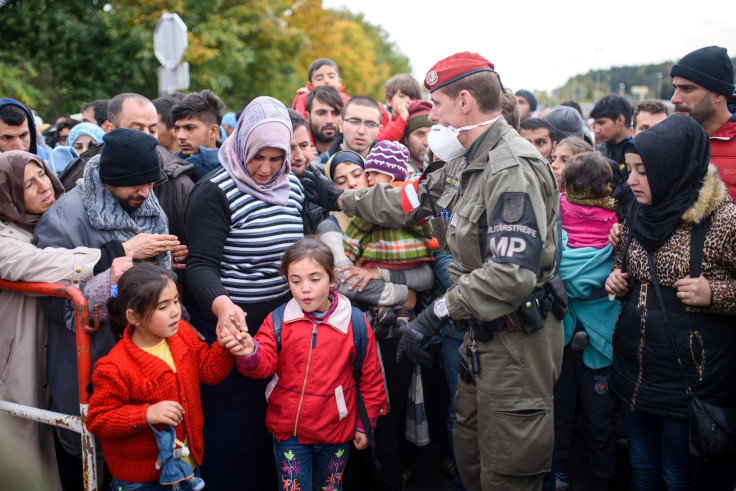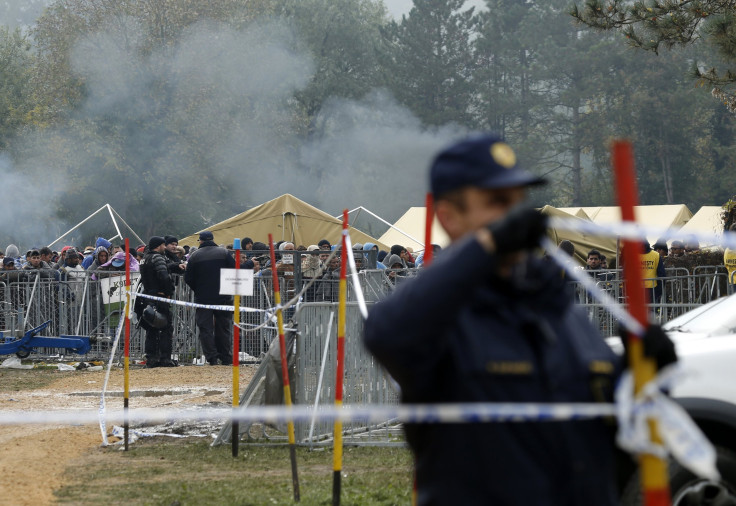Ahead Of EU Refugee Crisis Summit, Slovenia Is Latest European Country To Be Overwhelmed By Thousands Of Asylum Seekers

The small Central European nation of Slovenia is not in an enviable position. More than 20,000 refugees have entered the country since Saturday, prompting authorities to call retired police back into service and the parliament to amend a law to let soldiers to work with border police.
With hundreds of thousands of people fleeing conflict in the Middle East and Africa and adjusting their routes through the Western Balkans after Hungary closed its border with Croatia, the region has been overwhelmed. Slovenia, with a population just north of 2 million, is the latest country to be facing immediate pressures that the European Union's long-term refugee relocation policy fails to address. As colder weather comes in, an emergency EU meeting is scheduled for Sunday, leaving the continental bloc scrambling for temporary solutions while it works toward a permanent one.
“What they are really focused on is the very, very immediate,” said Frances Burwell, vice president for European Union and special initiatives at the Atlantic Council think tank in Washington. “It’s getting cold, it’s raining and they have all these people showing up, and none of these countries have the capacity to answer these needs.”
The Slovenian government has already said it is “delusional” to think that such a small nation would be able to successfully respond to the crisis when larger EU states have failed. Slovenia has recently come out of a banking crisis, while neighboring Croatia, the EU’s newest member, joining in 2013 with a population of over 4 million, has the third-highest youth unemployment rate in the union.

With temperatures dropping across Europe, the immediate need is urgent. Balkan states are likely to require financial assistance from the EU to set up emergency camps as refugees continue trying to move through Slovenia on to Austria, and then Germany in many cases.
The mini-summit planned for Sunday was called by European Commission President Jean-Claude Juncker to bring together leaders from Austria, Bulgaria, Croatia, Germany, Greece, Hungary, Romania and Slovenia, as well as non-EU states Macedonia and Serbia, AFP reported. Croatia began shifting refugees into Slovenia last weekend after Hungary blocked passage with a razor-wire fence. Slovenia has also called on the European Union to supply additional police and equipment to deal with the crisis.
“The numbers have been extraordinary. The infrastructure just needed to move people through a country are expensive. … They weren’t prepared for it,” said Demetrios Papademetriou, president of the Migration Policy Institute Europe, a think tank in Brussels, speaking of the Balkans. “It surprises me that Europe continues to be surprised by the size of flows and the preparations we need to make.”
While experts praise Germany's open-door policy, smaller and poorer nations lack the infrastructure to move people in a safe away, said Lydia Gall, a researcher for Human Rights Watch.
“The EU has chosen to focus on border enhancement rather than to get its act together to find a common approach based on shared humanity and relocate people sooner and make this process smoother,” said Gall, who witnessed the registration process in the Slovenian town of Središče ob Dravi early Wednesday. She described a slow process that forced refugees to wait outside with not enough heated tents for everyone.
eerie ww2 resemblance. #refugees walking last kms 2 reg point in #Slovenia where some waited 4 days 4 registration pic.twitter.com/BXxDNzuH4R
— Lydia Gall (@LydsG) October 21, 2015
Refugees fleeing conflicts and repressive states in (most notably) Syria, Iraq, Afghanistan and Eritrea have been undertaking dangerous journeys to Europe for well over a year, hoping to end up in countries such as Germany and Sweden that have welcomed refugees. The number of refugees arriving in Greece this past weekend surpassed the highest seen during the summer months as people attempt to beat the arrival of winter, the International Organization for Migration reported. More than half a million people have arrived by sea to Greece alone this year, the United Nation's refugee agency reported.
Tents were set on fire Wednesday at a refugee camp in the Slovenian town of Brežice, allegedly by refugees in protest of poor conditions and a slow registration process, raising concerns over potential riots, the BBC reported.

“It’s a crowd management issue. How do you manage 20,000 people?” Papademetriou asked. “It’s a recipe for some very bad television coming into our rooms.”
The EU is only beginning to understand complex secondary issues, including refugees not wanting to stay where they are placed and potentially prompting a new round of relocation, Papademetriou added.
EU states met last month to try to come up with a long-term solution to the crisis, agreeing to a relocation quota system for 160,000 refugees that drew vocal opposition from the Czech Republic, Hungary, Romania and Slovakia. The plan has been slow to get off the ground, with only 19 Eritreans being relocated from the frontline state of Italy to Sweden, AFP reported. Financial support pledged at the meeting has also been slow to arrive.
“There’s a disjuncture; the things they’ve been talking about in long-term like the relocation plan … and that will help in the future,” said Burwell, of the Atlantic Council. “But the problem is right now and they don’t have the capacity to process.”
© Copyright IBTimes 2024. All rights reserved.






















